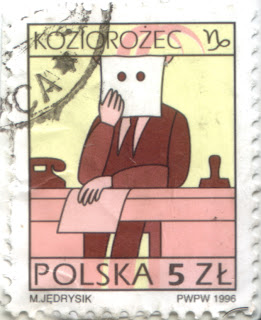LIBERATORS...?

Hmmm...
"...In Venezuela I got the point with even greater force. With a local friend I had managed to walk about La Charneca, one of those ugly Caracas slums surrounding gigantic ultra-modern steel-and-glass skyscrapers interconnected by huge spiderwebs of multistoried concrete highways. We were able to start a conversation with a small mild-mannered man of forty odd years who told us that three families - sixteen children - lived in his one-room shack made of discarded or stolen planks. It was a hot and humid day, and almost automatically we began to stare with him at a fifty-foot-wide Coca Cola advertisement that stood out at the foot of the slum hill.
"None of us in this house has ever drunk a Coca-Cola," he said softly. "One day we will kill those who make them."
- (from) John Gerassi, "The Great Fear in Latin America" Collier-Macmillan: London, 1965, p. 39
My favourite book on South American politics is 42 years old. Gerassi was a former editor of Newsweek, and had served as Time magazine's South American bureau chief for more than a decade. This should, by definition, make him a conservative commentator, and an advocate of business rights. He also has a PhD from the London School of Economics.
Here's words on the man from J-P Sartre:
"I trust no one more than Gerassi to make me understand America."
So, the cat has some clues. "The Great Fear" is the most lucid account of South America's labyrinthine political intrigues that I've come across; amply supported by an incisive economic analysis, but distinguished mostly by its rare humanity. The book documents the disconnect between the great fear of Washington power elites - communist subversion, south of the border - and that of the South Americans themselves - US intervention, however benignly intentioned. The history that informs this book is not a pretty one.
(Where am I going with this?) Well, I was curious to discover just how US claims to promote democracy beyond its borders might correspond with historical fact. I started doing a little research. Here's a list of democratically elected governments in South and Central America that were overthrown with some form of US espionage, financial or military support to the putsch, in the period since the end of WW2:
1954 Jacobo Arbenz Guzman, Guatemala
1961 Jose Maria Velasco Ibarra, Ecuador
1963 Juan Bosch, Dominican Republic
1964 Jao Goulart, Brazil
1964 Cheddi Jagan, Guyana (previous 1953 coup, principally due to UK intervention)
1972 Jose Maria Velasco Ibarra, Ecuador (Ha! Some folks just never learn...)
1973 Salvador Allende, Chile
1985-1990 Daniel Ortega, Nicaragua (Contra military intervention; armed & funded by the USA)
1990 Jean-Bertrand Aristide, Haiti
2002 Hugo Chavez, Venezuala (unsuccessful coup - Chavez restored to power)
2004 Jean-Bertrand Aristide, Haiti (another "repeat offender"...)
South American politics can be pretty messy - a country like Bolivia has the Guiness record for the most coups (192). Obviously I discounted to list the region's military regimes - almost all of which enjoyed some measure of material & moral support from the US. However, when reviewing the historical record, it is stunning how many reformist military juntas are themselves overthrown by a secondary coup - and typically with US support.
South American has an honourable tradition of politically engaged writers (Juan Bosch, from the Dominican Republic, was a plaudited poet & novelist). Isabel Allende's "House of the Spirits" and Mario Vargas Llosa's "The Feast of the Goat" are both recommended, among the wealth of work by their contemporaries.
Gerassi was writing at the time of the Kennedy presidency. More about JFK's foreign policy in a future posting; but you can find a recording & transcript of JFK's decision to remove Goulart here and here. There are some small 'for reasons of national security' edits from that record, but the context (discussion of the 1948 Italian general election) suggest he & his advisors are referring to Operation Gladio.
Hmmm...
some links:
Library of Congress country studies
North American Congress on Latin America - news
Central American political history database
Victor Jara on youtube:
(... and I am super-proud to anticipate that the next Omni release will include some of Victor Jara's music. Viva!)
Labels: jfk, john gerassi, liberators?, south america, victor jara


0 Comments:
Post a Comment
<< Home